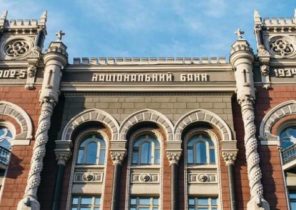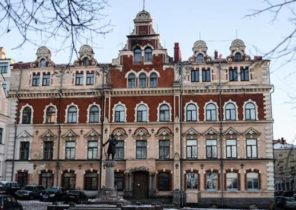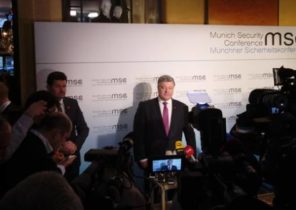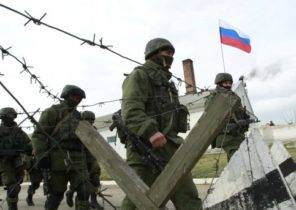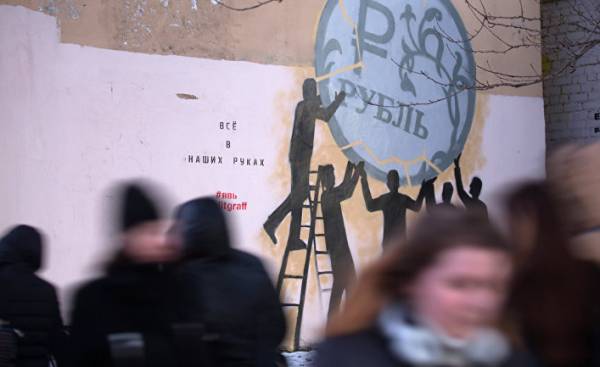
In the past at the beginning of June International economic forum in Saint Petersburg, Russian authorities have several times declared the end of the recession and the exit of economy from crisis. Is it true? And if so, does this mean that you no longer have anything to worry about? What sanctions have been successfully overcome? The weakness in oil prices is no longer a threat? The answers to all these pressing questions are extremely important for understanding of prospects of the Russian economy.
There is a formal approach to determine the end of the crisis. If the economy grows for two consecutive quarters, so the crisis is over. The figures are as follows: Russian GDP dropped 2.8% and 0.2% in 2015 and 2016. However, with the end of 2016, the situation improved in the fourth quarter of 2016, the GDP remained unchanged compared with the previous quarter, and in the first quarter of 2017 rose 0.3%. It turns out that even from the point of view of formal indicators of the end of the crisis too early to say.
Economic growth still very low and are within the statistical margin of error. But the question is not even sober assessments of Russia’s economic prospects. The problem lies elsewhere. Why the Russian economy started to experience such difficulties in recent years and its growth went on the decline? This is due not only to falling oil prices and the effects introduced in 2014 sanctions.
To prove it very easily: according for the first half of 2014, Russia’s GDP increased only 0.8% compared to the same period in 2013. In other words, we see that even with high oil prices (in the first half of 2014, a barrel gave more than $ 100) and the absence of sanctions (consequences of large-scale sectoral sanctions began to be felt in the economy only in the second half of 2014), the Russian economy barely moved forward.
Structural imbalance
This means that the main causes of the grave difficulties the Russian economy lay and still lie in something else. The main reasons for the deterioration of the economic situation in the country was mentioned at the highest level, at least twice: in the President to the Federal Assembly in 2013 and 2016. In these strategic documents noted in particular that the main reason for economic difficulties is in the internal problems of the country. But what are these internal problems? Unfortunately, any specifics here. It is obvious that we are talking about the same structural problems that, in the opinion of most Russians, must be solved in mandatory order.
Current structural problems associated with excessive role of the extractive industries, low shares of medium and small businesses (about 20%), the outrageous budget priorities (focus on defence expenditure instead of development of infrastructure and human capital), weak competition, poor governance, etc.
But why it is so important to understand the internal problems of the Russian economy? Because in order to decide what Russia is really committed with the economic crisis, we need to understand how to successfully implemented structural reforms to address these problems. Obviously, what to say about the exit from the crisis will be possible only after the elimination of its causes or at least a number of active steps in this direction.
Unfortunately, it is impossible not to recognize that the entire structural imbalance remains: the economy remains oriented towards raw materials, the share of small business in the economy still low, the problems in the field of competition did not disappear, etc. It is easy to understand, because the solution to structural problems of this level there is one unpleasant feature: is fast, can deal with them.
Temporary improvement
It is simply not feasible, at least in terms of technology: for example, it is impossible in just a few months to double the share of small business in the economy. Miracles do not happen: everything takes time. Conclusion: to seriously talk about the recovery from the economic crisis will be possible only after real progress in this area. Thus, the improvement of the economic situation in Russia in the spring and summer 2017 is temporary and unsustainable.
And what about the sanctions? Come to mind the words of former US President Barack Obama that because of the adopted after the events in Ukraine, sanctions Russian economy collapsed. In fact, nothing like this! A small decline in GDP in 2015-2016, says the lack of even a hint of collapse. Sanctions and opposition to them, of course, exacerbated the situation in the Russian economy, but will not become fatal for them. In addition, the decline in world oil prices since the second half of 2014 to early 2016 (to less than 30 dollars a barrel) contributed to the decline of the Russian economy, but also became an insurmountable obstacle. In other words, sanctions and lower oil prices represent only an additional negative factors for the Russian economy and are not the original cause of the crisis. And the lifting of sanctions and the increase in oil prices can not serve as a guarantee of overcoming the crisis.
Here arises a logical question: if in the country remain largely unresolved structural problems, the sanctions are still in force, and the price of oil is not considered high as the economy can emerge from the crisis, talking about the Russian government? This is explained in the following way. First, after the collapse of the economy there is some adaptation to new economic realities. This is more applicable to market economies and the Russian economy, despite all reservations, may still be considered as such. Second, oil prices rose: now they are kept at a mark in 55 dollars for barrel. Thirdly, we have seen sufficiently tight monetary policy that helped to stabilize the exchange rate, maintaining foreign exchange reserves and to reduce inflation. Fourth, the reserve Fund had taken the billions that went to cover Federal spending.
The lack of progress
Therefore, the improvement of the economic situation in the country is easy to understand. But does this mean that the worst is behind us and more to worry about? This is not certain: from many points of view, the crisis will not go away. At the moment, indecision reforms (in particular about raising the retirement age) should be considered in the perspective of the upcoming presidential election in 2018 (they, no doubt, will be successful in power). This creates a political window of opportunity for reform. The authorities will have to take action, which have already talked a lot today: to expand financing of infrastructure (primarily transport), to stimulate the development of the digital economy, to create conditions for an export boom.
Does this mean that the growth of the Russian economy will continue to accelerate and are projected at the highest state level, will circle the planet in 2019-2020? The probability of achieving the goals of 3.5-4% annual growth is very small. And not only because of the complexity with the effective implementation of reforms, but in the persistence of sanctions and low oil prices.
The problems and troubles of sanctions against Russia does not affect the fact that it no longer attracts investment. As shown by the experience of other countries who happened to spend many years in a similar position, the sanctions do not prevent to live, but become a brake on development. That is, the Russian economy may face not with a clear crisis and the lack of progress. This is called developmental delay. So the Russians would have to worry about the crisis, and the almost total lack of progress. And it is even worse crisis, because crises come and go, while developmental delay may stretch to infinity.
